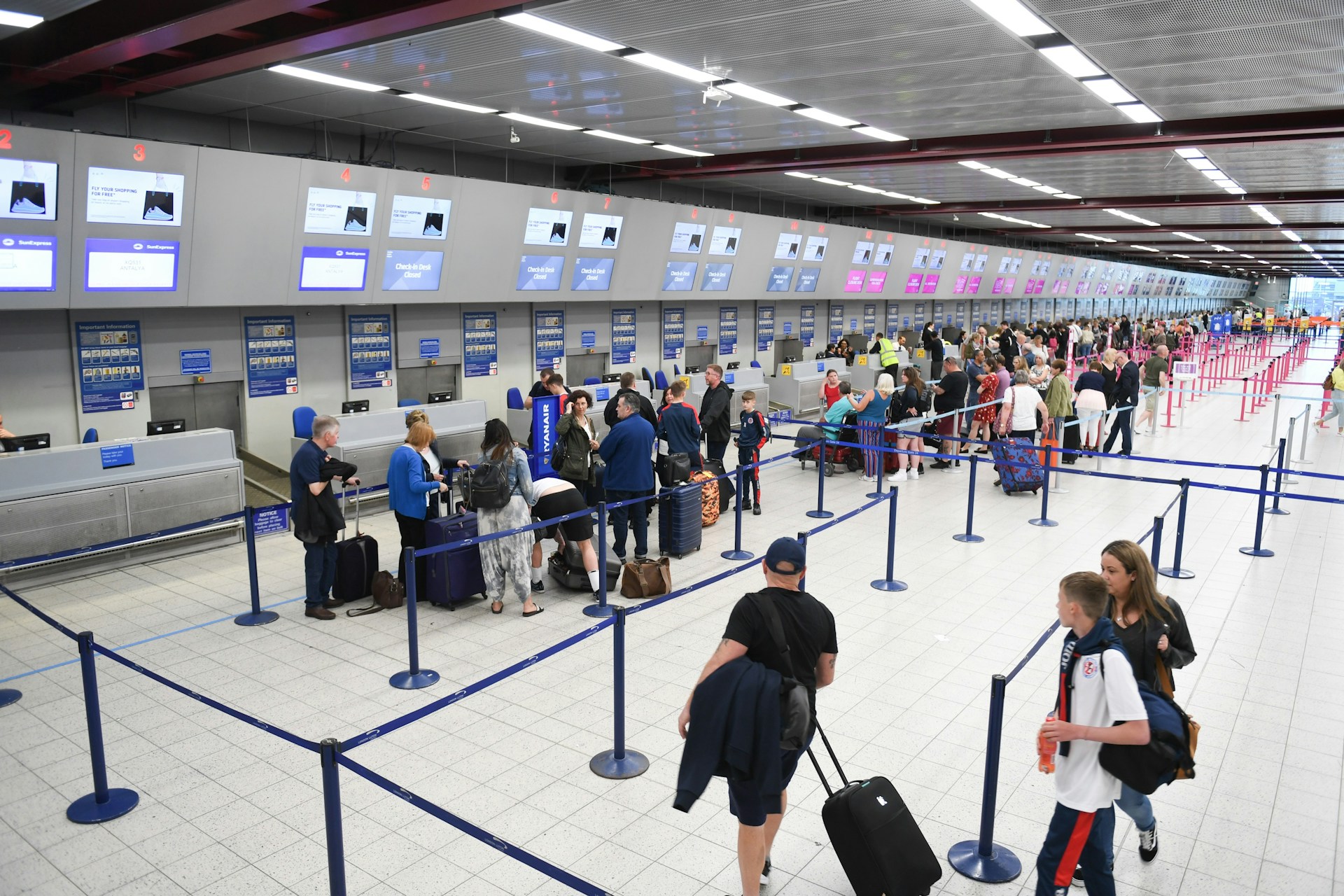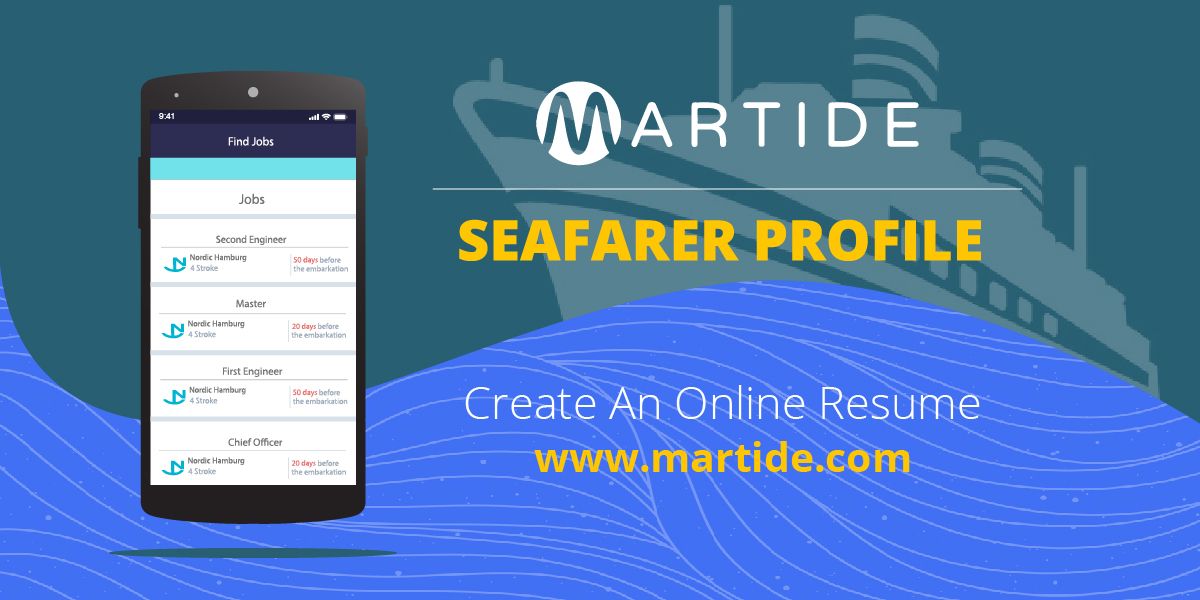3 Issues When Traveling for Jobs at Sea (And How to Avoid Them)
May 25, 2020 · 10 mins read ·
Life at Sea
It’s probably fair to say that jobs at sea are like most, if not all, other jobs in existence in that they can come with their challenges.
And although it’s certainly true that this applies to some careers more than others, whatever line of work you are in, those challenges can usually be overcome by being prepared and using some good old fashioned common sense.
No matter whether you’re working in ocean-going jobs in the shipping industry or you work in jobs in ports and shipping offices, it is up to you to be as prepared as possible to tackle any obstacles that may arise in the course of your duty.
Read more: 8 Things You Should Never Do in Jobs at Sea
So with that in mind we thought we’d have a look at some steps you can take when you’re working in seafarer jobs to minimize any issues or annoyances, specifically when traveling.

What issues might you run into when you're working in a seafarer job?
Obviously a huge part of many seaman jobs involves traveling abroad.
And that’s not just for those people who are working in actual jobs at sea - plenty of jobs in the shipping industry involve travel and whether you’re employed in types of maritime jobs ashore or those that take you offshore, it is always good to stay out of trouble!
Related: 9 Things To Do Before Leaving Home for a Job at Sea
If you’re a seaman you will need to travel internationally to be able to join your vessel. And this in itself can cause the odd problem or two.
It’s especially worth taking note of the dos and don’ts of traveling to other countries if you’re starting your sea career in entry level cargo ship jobs and perhaps not used to traveling so much.
Often problems arise, not through an individual wanting to cause trouble or intentionally breaking the law. The issue is that every country, and in some cases, states or regions, have their own set of laws - and even customs - that can land you in hot water, even if you didn’t realize you were doing anything wrong!
Let’s take a look at how you can get the most out of working in jobs at sea - and avoid running into problems on your way there!
1. Missing your flight
Ahh yes - one of the most stressful things that can happen to a human being!
Whether you’re lined up for a seafarer job contract and on your way to meet your vessel or you’re taking a well earned vacation with your family during your time on shore, there’s nothing quite like racing to catch a flight to get the blood pressure spiraling out of control!
There’s only one real way to solve missed flight syndrome and that is to leave yourself plenty of time to get to the airport. Take into account bad traffic, bad weather and bad luck.

As they say, better safe than sorry and even though it might be boring, it’s better to be hanging around at the airport with time to kill rather than missing your flight and not making your crew change over date.
Of course, one big problem that is out of your hands is airline delays. It’s likely you’ll have to take a connecting flight to reach your port of embarkation (or home.) And if your first flight is delayed, that can have a serious knock on effect on the rest of your journey.
Read more: 7 Tips for Getting Over Jet Lag in Seafarer Jobs
So what should you do if you’re on your way to start a job at sea and your flight has been delayed and there’s a good chance you might miss your connection?
Get in touch as quickly as possible with your maritime recruitment company or manning agent and let them know. They might need to scramble at their end in the office to make arrangements for new flights.
It’s also a good idea to also speak to airport personnel and explain the situation and ask them how long you can stay in the airport while your shipping company or agency makes other arrangements for you.
2. Failing the airport security check
Picture this; you’re excited about starting your career in entry level cargo ship jobs and you’re queuing in line at the airport, waiting for the security check.
And suddenly it all starts to go wrong. The security guard is looking at you in a way that makes you feel uncomfortable.
The problem is that you might not even know if you’re doing something wrong. It’s back to that issue of what might be legal or acceptable behavior in one country doesn’t necessarily mean it’s legal or acceptable in another.

The answer here is to do a little research into the countries and airports that you are passing through. You don’t need to do hours of reading, but a quick look online should give you an idea of what you should and shouldn’t do in certain destinations.
Read more: The Seafarer Packing Guide for Anyone Working at Sea
Most airports have their own website, which should give you a sound starting point.
A good rule of thumb is to use your better judgement. If you’re asked to take off your shoes and belt when going through the security check, do it.
Follow the signs and warning messages that are posted around the airport, specifically at security: for example, don’t take photos or talk on your cell phone.
Make sure you’re not carrying banned items in your luggage and that you don’t have more than the allowed amount of liquid in your carry on bag - this also varies from country to country, so do your homework if you’re carrying your toiletries in your hand luggage.
Finally, and it goes without saying, don’t crack any “jokes" when it comes to sensitive subjects, whether that’s terrorism or health issues.
You really don’t want to be delayed going through security checks and miss your flight. And you really, really don’t want to end up being detained. That’s not going to look good on your employment history, whether you’re starting out in entry level cargo ship jobs or you’ve been working in jobs at sea for decades.
3. Running into immigration issues
You’ve made it through security; next up immigration. The main issues here faced by those working in seafarer jobs is that their paperwork isn’t 100% correct. If your appointment, Ok To Board, and joining letters have any errors you could be delayed, detained and/or not allowed to board your plane.

Make sure that when you receive these documents in preparation for your journey, you double check them carefully.
Report any mistakes immediately to your contact at the shipping company or agency so that the documents can be corrected. (And don’t forget to double check the replacements too!)
Read more: Jobs at Sea & Dealing with Lost Luggage & Documents
Remember to be polite and respectful when going through immigration and obey signs and instructions, such as removing headgear, if possible, and sunglasses.
You should also do your best to make sure that your passport and seafarer documents are in a decent condition and don’t have any rips or tears, and stains, stickers or staples.
Of course, making sure your passport is valid for the entirety of your contract and until the period specified by the country you are traveling through or to is also crucial.
Conclusion: do research and play by the rules!
Jobs at sea inevitably involve international travel - in fact we’d say that’s one of the perks of jobs in the shipping industry! But travel can often come with a side order of stress, whether you’re traveling for leisure or for work.
None of the problems listed above can be insurmountable - just make sure that you do a little research and play by the rules accordingly and you should be fine.
Meanwhile, if you’re looking to line up your next contract, Martide can help you find different types of maritime jobs from Junior Electrician to Chief Officer and from Oiler to Marine Chief Engineer jobs.

In fact, downloading our mobile app for seafarers is just another way you can be more prepared when it comes to working in jobs at sea.
Not only can you find all of our current jobs in the shipping industry on the app, you can also use it to stay in touch with employers and manning agencies.
That means, if you do run into trouble at the airport, help and guidance will only be a few clicks away.
Download the app today - it’s free! - from Google Play for Android or from the App Store for iOS.

Eve Church
Eve is Martide's content writer, publishing regular posts on everything from our maritime recruitment and crew planning software to life at sea. Eve has been writing professionally for more than two decades, crafting everything from SEO-focused blog posts and website landing pages to magazine articles and corporate whitepapers.
UK

is the only site for maritime jobs



